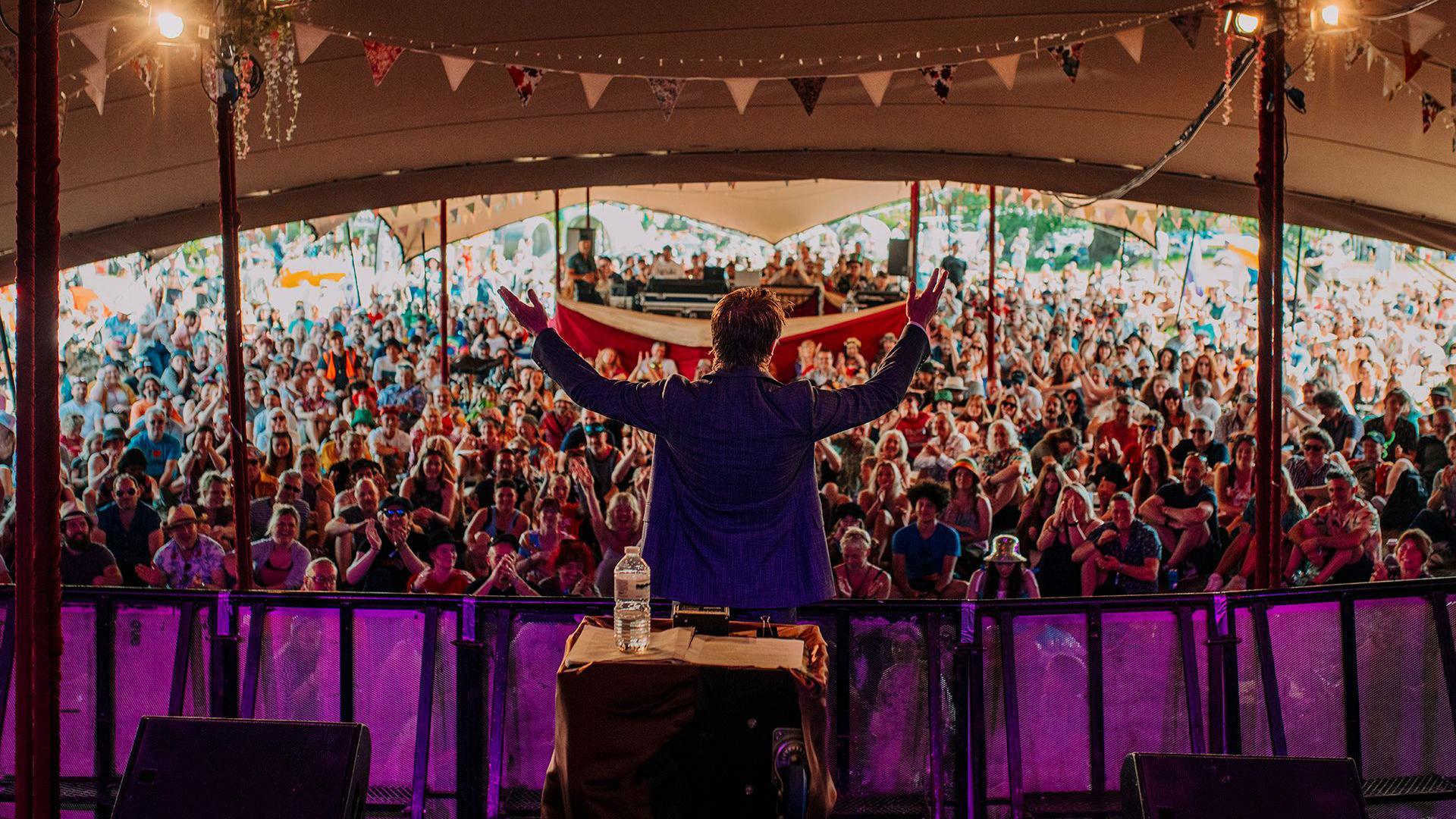Troubling time for festival traders as costs 'soar'
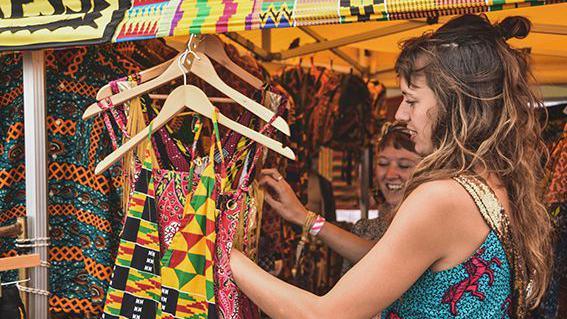
Ashanti Empress owner Ruby Maya said it is now "very difficult" to make money at festivals
- Published
Traders are considering whether if it is still beneficial for them to attend festivals as prices "soar" and events are cancelled.
At least 36 UK festivals announced a postponement, cancellation or complete closure in 2024, the Association of Independent Festivals (AIF) said.
In the West, Shindig hosted its final festival in May and Nibley Music Festival did likewise in June.
Ruby Maya, owner of Bristol-based Ashanti Empress, said: "Before, you would just pay a pitch fee and now it's that plus a percentage of what you make."
Ms Maya, who trades at festivals such as Glastonbury, WOMAD, Love Supreme and Tropical Pressure, said prices were increasing for festival traders "year on year".
"People in the stall next to me at Glastonbury hadn't covered their pitch fee by the Sunday.
"It's becoming more and more difficult... but it's a squeeze for everybody," she added.
"Festivals themselves are having trouble with ticket sales so are having to find prices in other ways.
"I'm 80% sure I won't do festivals in the future and will move completely online."
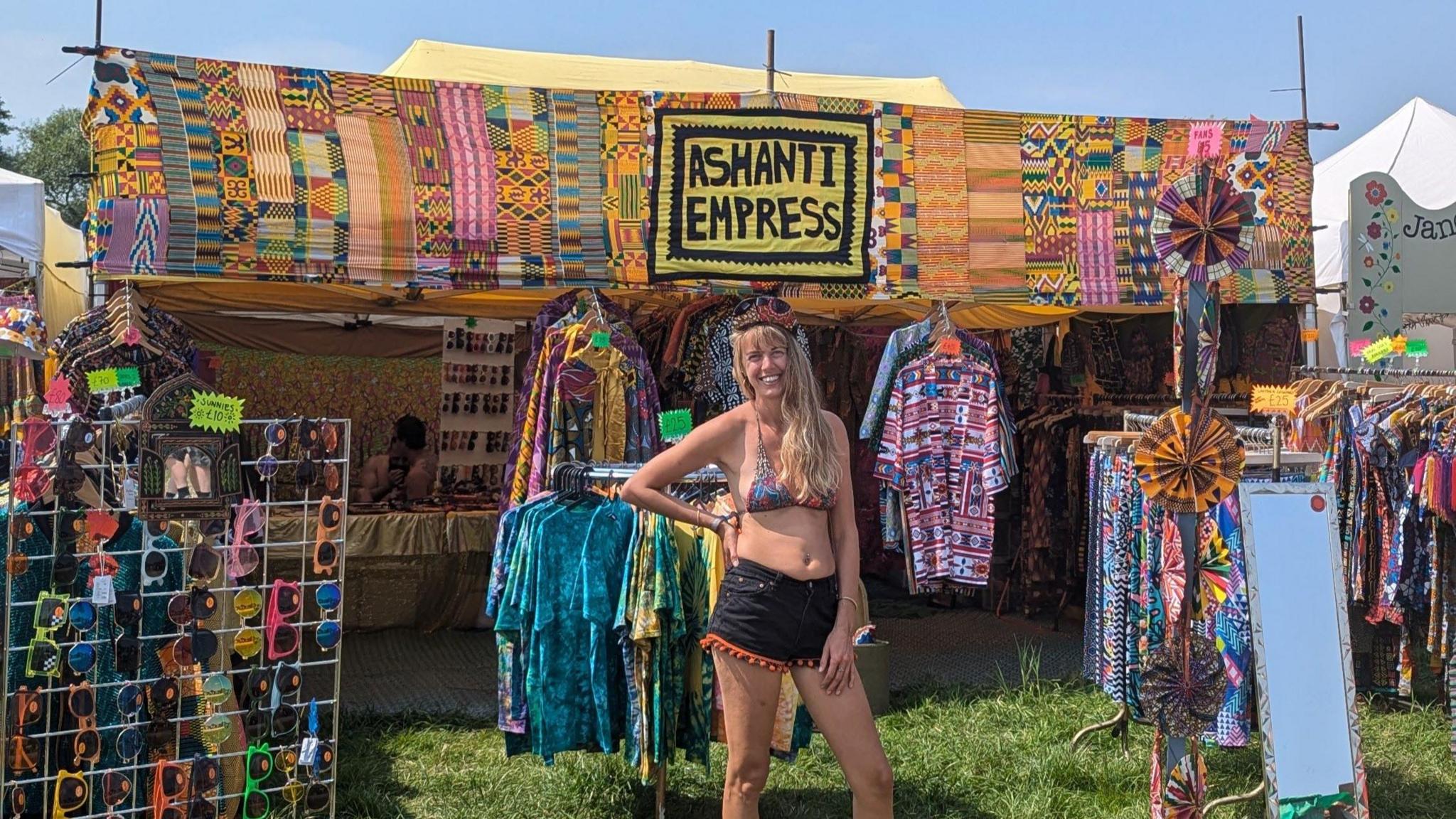
Ms Maya told the BBC she leaves festivals "with little money in my pocket"
Emily Fields, owner of Cornwall-based furniture restoration business The Fields, said the sums festival organisers are now charging were based on "pure greed".
"The amount of money we're making has massively decreased," she said.
"I've been going to festivals since I was a toddler and they were never like this - they've been turned into a corporate thing.
"They're now making you use their card payment systems - you pay to rent the card machine, they then take a percentage of your takings and charge for the pitch."
'Very sad'
Robyn Lythe, owner of Bristol-based clothing shop Burnt Soul, said higher pitch prices meant festivals would lose smaller businesses that cannot compete with larger brands.
She said: "Everyone keeps saying 'hold on, things will change' but I genuinely think people just don't have the spare cash to spend at festivals anymore.
"It means it's not worth it for traders really. It's very sad this is happening."

The Fields has been running at festivals for three years
A spokesperson for Glastonbury Festival said it operates a system in which traders know all their costs before they reach the site.
"Although many festivals have moved to a percentage payment for all traders based on sales, Glastonbury has not followed suit and charges a fixed fee to traders which is calculated individually for each stall.
"Glastonbury also confirms pitch locations in advance which we believe is very important information for all traders to know before they arrive on site.
"We pride ourselves in selecting and appointing independent business operators for food and non-food in order to offer quality and variety, and we get very positive feedback from our traders, with around 80% returning each year."
More festivals at risk
Association of Independent Festivals' CEO John Rostron said in June the UK's festival sector had reached a "regrettable landmark" and that more government help was needed.
"Our research suggests around 100 festivals will throw in the towel before the year is out, and more will go into 2025 at risk if there is not the temporary fiscal support they need.
"This is the most challenging time for independent festivals who desperately need an intervention... before more events inevitably fall."
A spokesperson from the Department for Culture, Media and Sport said: “Festivals are an important part of cultural life in Britain and one of the pillars of our world-leading music sector.
"The government is committed to supporting our creative industries, including festivals, so they can thrive for years to come, celebrate our nation's wealth of talent and drive economic growth into communities across the country.”
Get in touch
Tell us which stories we should cover in Bristol
Follow BBC Bristol on Facebook, external, X, external and Instagram, external. Send your story ideas to us on email or via WhatsApp on 0800 313 4630.
Related topics
- Published7 May 2024
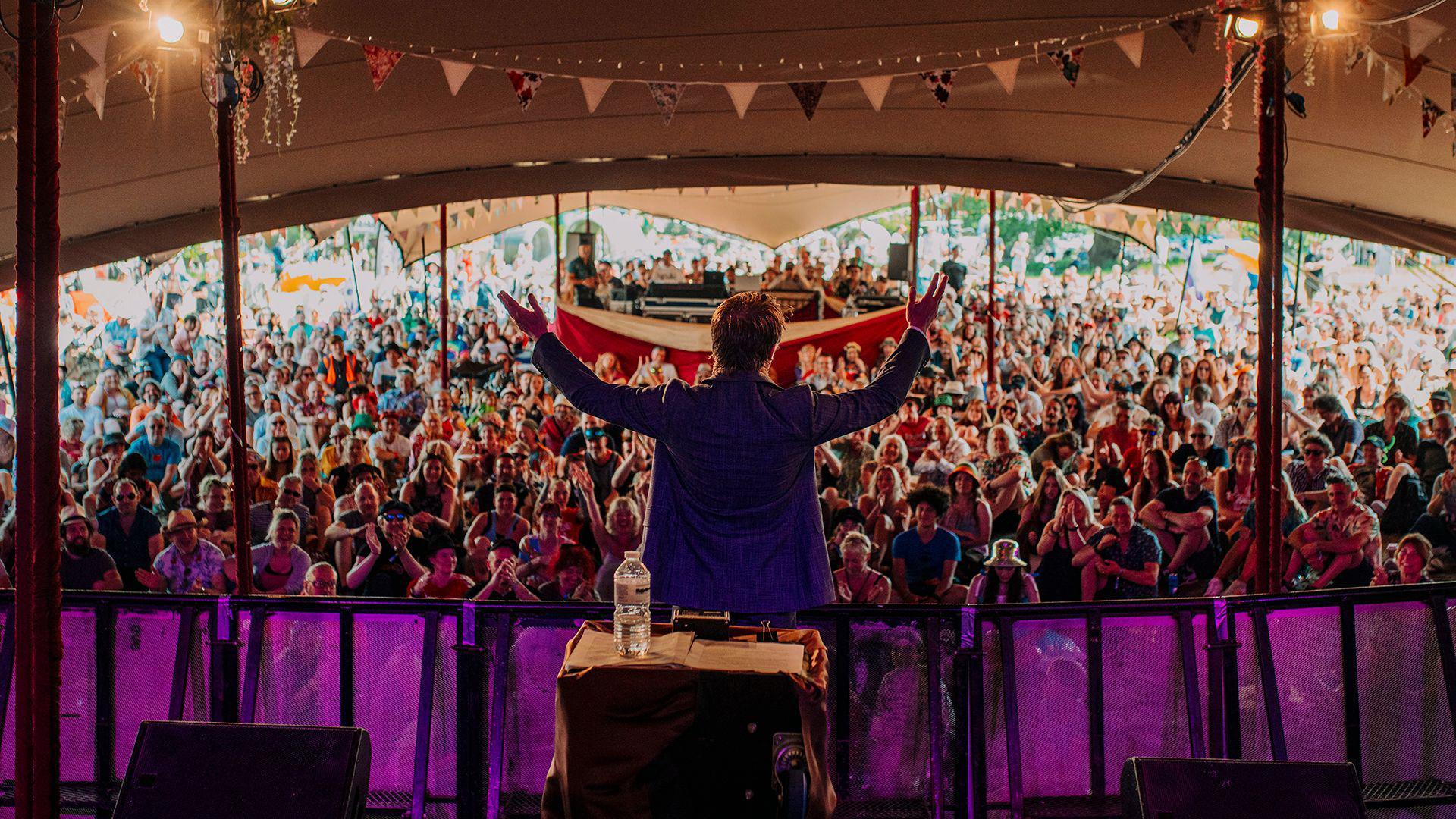
- Published17 March 2024
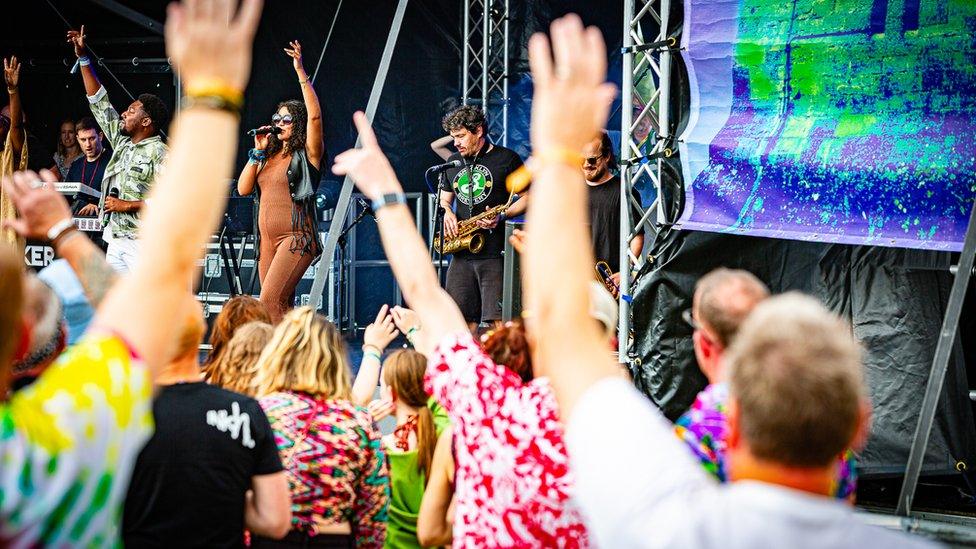
- Published25 March 2024
